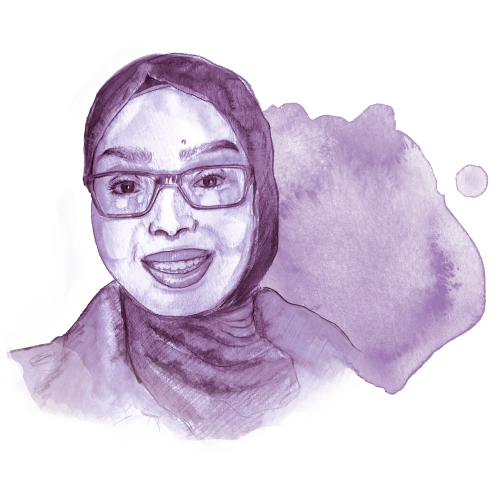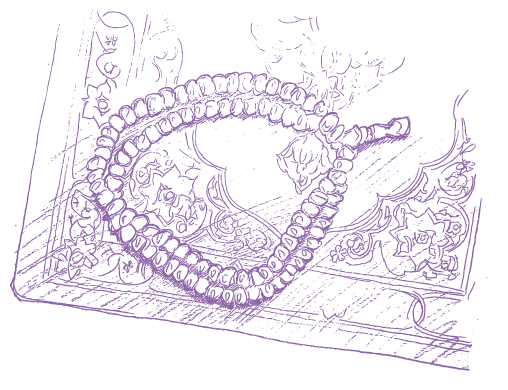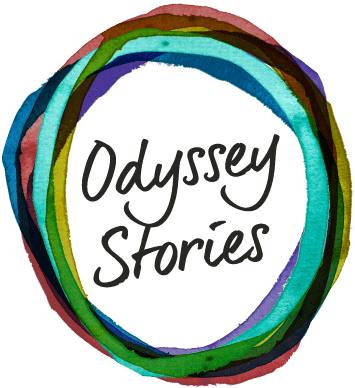Nasra

I’m in my first year of teaching and I’m really enjoying it. In fact I can’t imagine doing anything else! I can empathise with the children I teach who don’t speak English as a first language because I can remember what that feels like. I was born in Somalia but we came to the UK when I was about six. I remember getting angry and frustrated myself while I was at primary school because I couldn’t speak the language properly. But now, as a teacher, I can deal with those situations. It makes me feel like I’m helping in more ways than one.
I want to be an understanding, culturally literate and creative teacher. Most of all, I want to entice children to enjoy learning. And as teachers we need to teach our pupils to understand that we all make mistakes, but we need to learn from them.
I do a lot to help at home. I’m the eldest of six children – I call myself the test child! My mum was a single parent for a while so I’m seen as her right hand. We came to the UK because of the civil war in Somalia. I’ve only been back once and I cried when I got there. It was so strange to see everything again and still feel at home.
My Islamic faith is important to me. It’s true that I inherited my faith, but since I’ve been in my twenties I’ve matured and explored my religion, which has helped me to develop a stronger relationship with my faith. I want to make sure I’m aware of what I’m doing and that I have the time for self-reflection, after all it’s a journey.
I think it’s good to talk to one another. Once people have a conversation it diminishes the idea of ‘the other’.
I’ve been involved in a youth project for many years, which helps young people to read and understand the Qu’ran. It’s a good avenue to be able to talk with other young Muslims and we discuss things like wearing the headscarf and finding the balance of practising our faith and being young adults.

We are very aware of radicalisation and also how others perceive us, particularly with wearing the headscarf. But I’m very proud of my religion so for me wearing the headscarf is part of my identity. I see it as a form of liberation and it’s important to be able to have that dialogue. I’m aware that it makes you a target and we do have to be vigilant – once my mum was attacked when she was pregnant. Being Muslim means we’re not owed the luxury of being seen as individuals; we’re often grouped together. One Muslim’s mistake is easily assigned to others.
But I do think it’s good to talk to one another. Once people have a conversation it diminishes the idea of ‘the other’. We need to acknowledge and celebrate our differences.
Read more Oval Stories